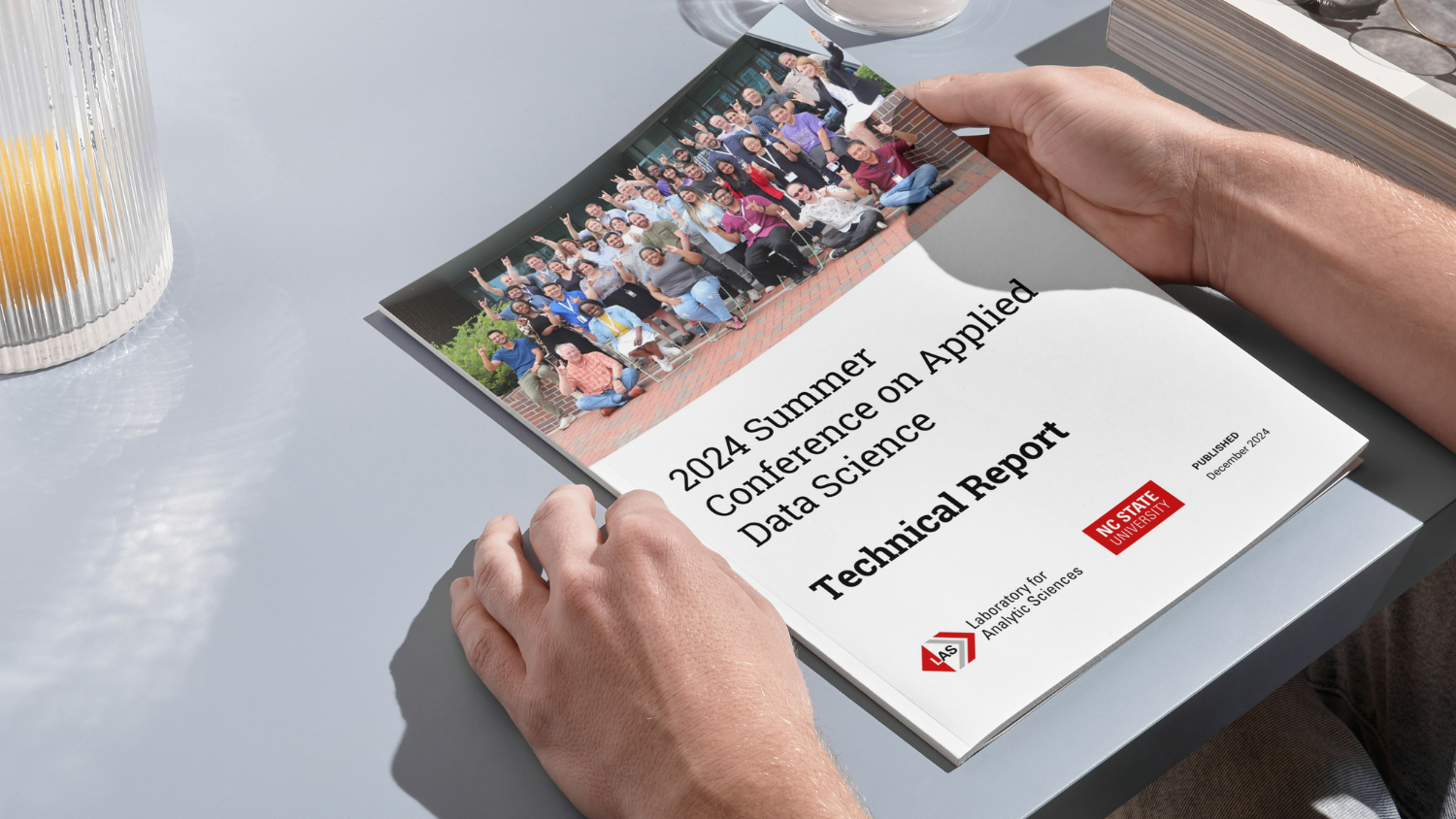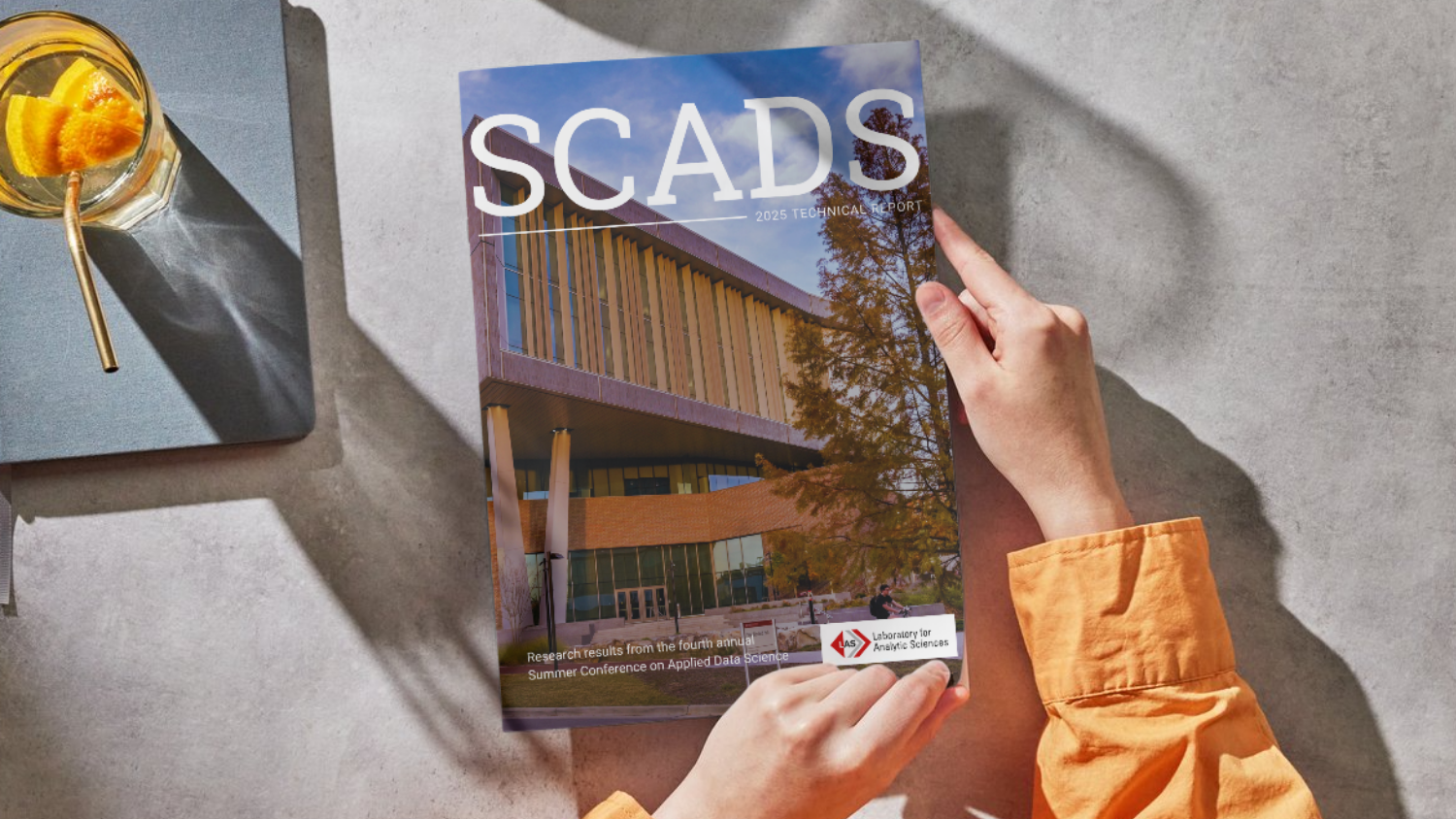SCADS Technical Report Highlights Innovative Prototypes for Intelligence Analysts
Collaborators at the Summer Conference on Applied Data Science fine-tuned intelligence reporting prototypes and studied what makes intelligence analysts more likely to trust AI.

LAS has published its technical findings from the 2024 Summer Conference on Applied Data Science. The report captures the results of more than forty research projects undertaken by data science researchers this past summer. The annual Summer Conference on Applied Data Science, or SCADS for short, is an eight-week program hosted by the Laboratory for Analytic Sciences (LAS) at North Carolina State University in Raleigh, NC. The conference brings together approximately 50 participants from across government, academia, and industry, to continue work toward the multi-year grand challenge of generating tailored daily reports (TLDRs) for knowledge workers, with a specific focus on advancing the research and development of artificial intelligence to assist U.S. Intelligence Community data analysts.
Participants focused their research projects on the following areas: automated summarization, content recommendation, human-computer interaction, knowledge representation, synthetic dataset creation, and evaluation methods applicable to a TLDR system.
The National Security Commission on Artificial Intelligence (NSCAI) and the Center for Strategic and International Studies (CSIS) inspired the grand challenge by promoting the need to transform national intelligence by adopting AI-enabled capabilities.
“The team at SCADS this year made significant strides in improving information triage, personalization, and operationalization of TLDR systems,” says Matthew Schmidt, principal investigator of LAS. “This technology will help intelligence analysts more easily make sense of new knowledge and information as it arrives.”
Top Takeaways
Technical takeaways from the SCADS 2024 technical report include:
- New prototypes increase the interactivity, explainability, and directability of the tailored daily reports (TLDRs).
- Evaluation of TLDR systems requires user-focused metrics and methods.
- Summarization of multilingual and/or modal datasets is both necessary and complicated.
- TLDR users want to use recommender systems differently.
- More work is needed to allow for knowledge to be used to improve the output of a TLDR.
2025 Applications Open
LAS is now recruiting participants for the 2025 Summer Conference on Applied Data Science. Grad students, faculty, and industry researchers interested in working on a data science problem for the summer in Raleigh, NC, are invited to apply for SCADS 2025. Participants will have access to documentation and resources produced during previous SCADS.
About LAS
LAS is a partnership between the intelligence community and NC State that develops innovative technology and tradecraft to help solve mission-relevant problems. Founded in 2013 by the National Security Agency and NC State, each year LAS brings together collaborators from three sectors – industry, academia and government – to conduct research that has a direct impact on national security.
- Categories:



